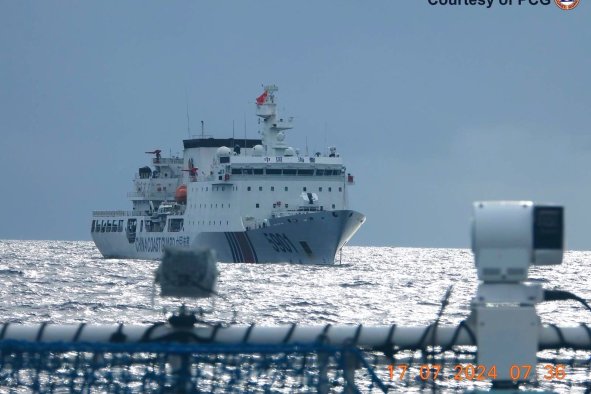Support truly
independent journalism
Support Now
Our mission is to deliver unbiased, fact-based reporting that holds power to account and exposes the truth.
Whether $5 or $50, every contribution counts.
Support us to deliver journalism without an agenda.

Louise Thomas
Editor
The Taliban has banned UN human rights special rapporteur Richard Bennett from entering Afghanistan after he repeatedly advocated for the restoration of basic rights for girls, women and minorities in the country.
Zabihullah Mujahid, the chief spokesperson of the Taliban regime, said on Wednesday that the UN official would no longer be allowed to enter the war-torn country, claiming he was “spreading propaganda”.
Mr Bennett is based outside of Afghanistan but has visited the country on multiple occasions since his appointment in 2022 to research the human rights situation on the ground.
He is yet to respond to the travel ban, although The Independent understands his office is likely to issue a statement later today.
Mujahid, the Taliban spokesperson, told Afghanistan’s Tolo News that Mr Bennett’s reports on the denial of women’s rights in Afghanistan under the militant group “exaggerate[d] minor issues”.
“Mr Bennett’s travel to Afghanistan has been prohibited because he was assigned to spread propaganda in Afghanistan. He is not someone we trust. He is not in Afghanistan, and he is no longer permitted to come here," he said.
Last week, as the Taliban celebrated the three-year anniversary of its takeover of Afghanistan, Mr Bennett called on the international community not to allow the hardline Islamists’ rule on the country to be seen as normal, as he flagged further deteriorations in human rights in the past year.
“Over the past three years, the people of Afghanistan, especially women and girls, have been subjected to an appalling and intensifying attack on their rights and freedoms by a regime that lacks legitimacy and inclusivity, quashes all forms of dissent, represses civil society and the media, and has shown a flagrant disregard for the principles of justice, non-discrimination, equality, and the rule of law,” he said in a statement, calling for urgent international action.
The Taliban has issued more than 80 edicts, directives, and statements which specifically target and restrict the rights of women and girls since taking power in Afghanistan, Mr Bennett said.
He added: “The Taliban’s deliberate subjugation of women and girls is widespread and systematic, amounting to crimes against humanity, including the crime of gender persecution.”
Mr Bennett was appointed by the UN Human Rights Council in 2022 to monitor Afghanistan’s human rights situation after the Taliban takeover in August 2021.
Experts say Mr Bennett’s unflinching assessments of the gender apartheid in Afghanistan have angered the Taliban leadership.
Heather Barr, associate women’s rights director at Human Rights Watch, told The Independent that the decision to ban Mr Bennett was a “direct and frustrating consequence” of a decision by UN officials to invite Taliban leaders, including Mujahid, to talks in Doha while excluding women.
Banning Mr Bennett will remove one of the few layers of scrutiny when it comes to monitoring the group’s continued abuse of women, girls and minorities, she warned.
Mr Bennett also spoke out just before the Doha talks began in June this year, asking the UN and its member nations not to agree to Taliban demands to exclude women and civil society activists from the discussions and remain committed to feminist foreign policies.
The third round of the Doha talks was intended to set out a course for international engagement with Taliban-ruled Afghanistan. The Taliban wasn’t included in the first round and refused to join the second in February after the UN rejected its demand to act as Afghanistan’s sole official representative.
“Everyone warned the UN before the [third] Doha meeting that they must not do this, this is incredibly harmful but they did not listen. We knew it was incredibly harmful as it potentially set a precedent about not discussing human rights, excluding Afghan women,” Ms Barr said.
She said a message needed to be sent to the Taliban that they cannot stop human rights monitoring in Afghanistan and prevent the world from knowing about what they are doing to the country simply by preventing people from entering.
“They cannot throw every single person out of Afghanistan, be it the UN or Human Rights Watch or Amnesty International. Richard and everyone will continue to do that work without the Taliban’s access and permission,” she said.
Disclaimer: The copyright of this article belongs to the original author. Reposting this article is solely for the purpose of information dissemination and does not constitute any investment advice. If there is any infringement, please contact us immediately. We will make corrections or deletions as necessary. Thank you.




